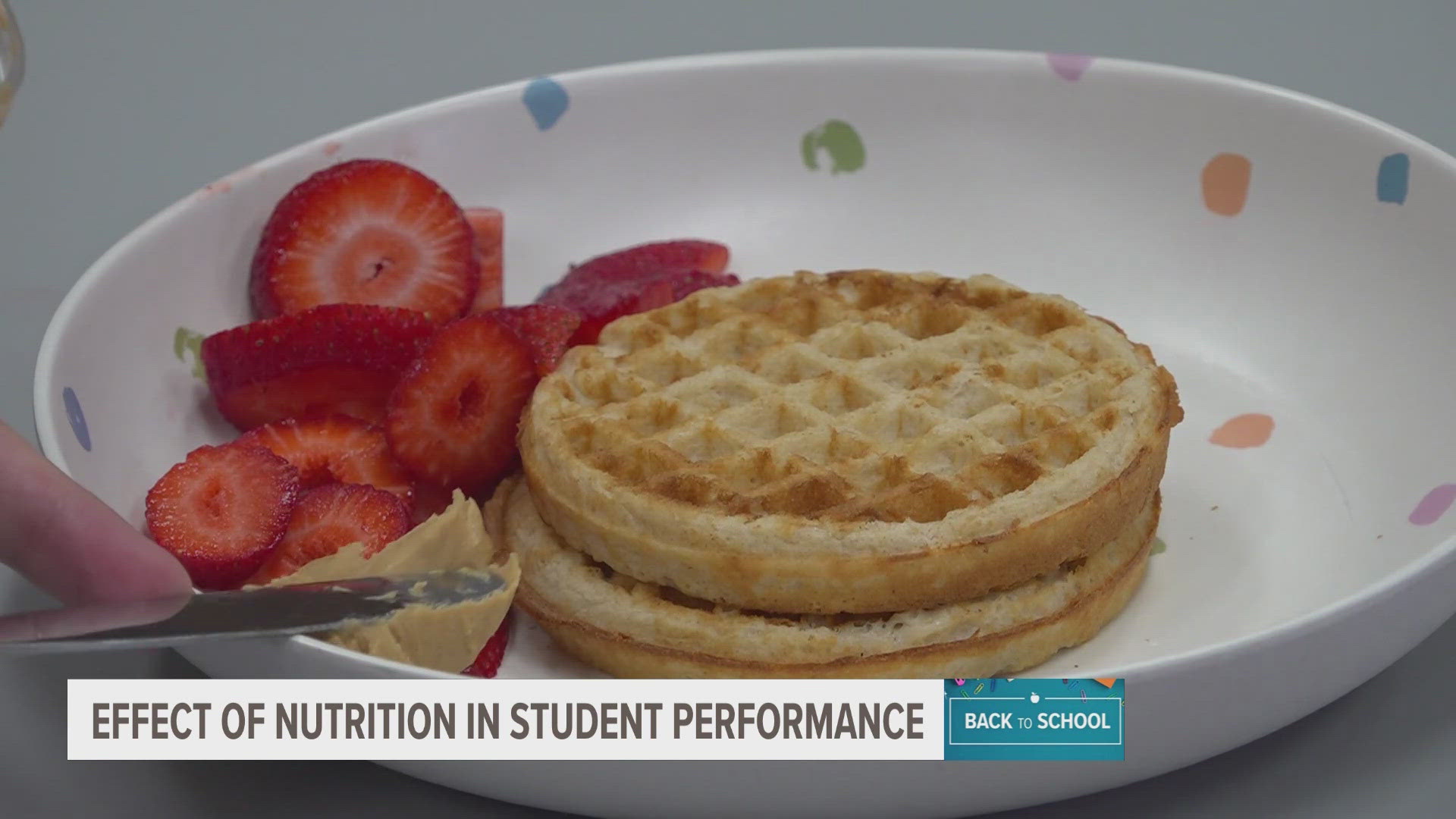MICHIGAN, USA — Back-to-school season has arrived in West Michigan. While preparing your student for the new school year, it’s important to keep nutrition at the forefront of your mind.
What students eat can impact how they behave and perform in the classroom. If they're not eating enough – there can be consequences.
Nichole Anguilm, a registered dietician and an Applied Food and Nutrition Professor at Grand Valley State University, says some children can’t verbalize that they are hungry. Oftentimes this causes children to display disruptive behaviors.
“So when we’re feeling hungry ourselves we can’t focus,” Anguilm said. “All we can think about is all of those physical cues of how we want to eat. Sometimes kids – if you think of your kindergarteners – might not be able to express to you ‘I’m hungry.’”
So what should children be eating before they leave for school in the morning? A balanced breakfast would include all three food groups: Carbohydrates, fats and protein. This helps children feel fuller for longer periods.
Often children crave carbohydrate-heavy food like pancakes, waffles or sugary cereals. Anguilm says it’s a good idea to add sources of protein and fats to those dishes.
“We want to just make sure we plug in that protein to help keep them full,” she said. “So adding things like peanut butter or eggs, or whatever your child likes, can help with that.”
She also suggests packing snacks for students to eat throughout the day. Snacks she recommends include string cheese, granola bars and peanut butter crackers. These snacks can all be found at local discounted grocery stores.
The Bigger Picture
Packing snacks and providing meal ideas is not an easy fix for child hunger.
According to Feeding America, 1 in 7 people in West Michigan and the Upper Peninsula is at risk of hunger, which includes nearly 80,000 children.
Students who face good insecurity are more prone to developing depression, anxiety and having poor focus in the classroom.
Anguilm says students who are food insecure often only eat breakfast and lunch provided through school nutrition programs.
These organizations provide resources for West Michigan families who face food insecurity:

